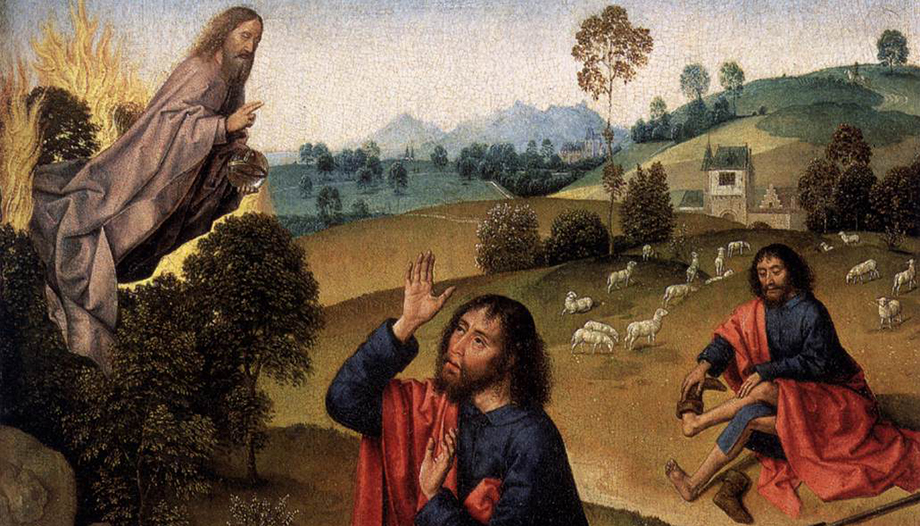From the burning bush, God calls Moses to speak to his people in his name and lead them from the liberation of Egypt to the beautiful and spacious land where milk and honey flow. God has compassion on the sufferings of his people and reveals his name to them, "I am who I am."which can mean: "I am the one who is present, and I will always be at your side". We respond with Psalm 102: "Bless the Lord, O my soul, and forget not his benefits. He forgives all your faults and heals all your diseases; he rescues your life from the pit, and fills you with grace and tenderness."
But Paul reminds the Corinthians that in the wilderness the people of Israel displeased God on several occasions. They murmured against Moses and Aaron, and God sent them a scourge and they died in thousands; and when they protested against God and Moses for having led them into the wilderness, being bored with manna, they perished in great numbers bitten by serpents. Paul explains that "these things came to pass in a figure for us, that we might not covet evil as they coveted it."
This helps us to understand Jesus' words in response to the tragic news he was told about the Galileans who died at the hands of Pilate. Jesus makes explicit his hidden question: was it because of their sins? But he denies that this is the cause, and specifies that this also applies to any tragic event, such as the tower that collapsed killing many, due to natural causes or human error. There are all the possibilities we are confronted with every day that raise the question: but where was God? And they lead to the easy answer that God is not good or is disinterested in us, which, sooner or later, leads to denying his existence. Jesus helps us to give true meaning to these events. He removes from us the false thought that there is guilt in those who are struck by the loss of life or other evils, and explains to us that these things point to our conversion, to return to God as the only God and to the good living that manifests his goodness. He reminds us that our life is also fragile and can end at any moment and, if we do not convert, we would not be prepared and would run the risk of the second death, the eternal one.
In the following parable, Jesus reinterprets in the light of mercy the episode of the fig tree without fruit, narrated by Mark and Matthew, which he had cursed and instantly dried up. Here, instead, in the parable, Jesus, in the role of the vinedresser, asks the Father to leave the tree one more year so that it may bear the expected fruit. Jesus always intercedes for us before the Father. And in this dialogue of love between the Father and the Son, the story of redemption is fulfilled.
The Homily in one minute
The priest Luis Herrera Campo offers its nanomiliaa small one-minute reflection for these readings.












